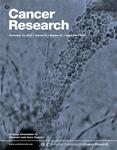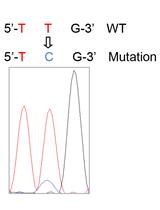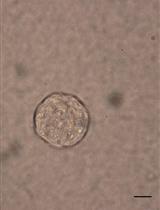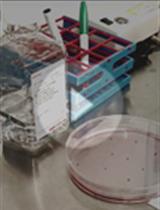- EN - English
- CN - 中文
Isolation of Mouse Embryo Fibroblasts
小鼠胚胎成纤维细胞的分离
发布: 2013年09月20日第3卷第18期 DOI: 10.21769/BioProtoc.908 浏览次数: 20750
评审: Lin Fang
Abstract
Preparation of primary cultures of embryo fibroblasts from genetically engineered mouse strains can provide a valuable resource for analyzing the consequences of genetic alterations at the cellular level. Mouse embryo fibroblasts (MEFs) have been particularly useful in cancer research, as they have facilitated the identification of the genetic changes that allow cells to overcome senescence and proliferate indefinitely in culture. The immortalized MEFs can then acquire additional mutations that lead to anchorage-independent growth and the ability to form tumors in mice. Recently we developed an MEF model system for analysis of the role of the tumor suppressor gene DLC1 in cellular transformation (Qian et al., 2012). In this communication we describe a protocol for the isolation of MEFs from day 13.5-day 14.5 mouse embryos. The MEFs obtained by this procedure are suitable for use in biochemical assays and for further genetic manipulations.
Keywords: Mouse embryo fibroblasts (小鼠胚胎成纤维细胞)Materials and Reagents
- Mice 13-14 days pregnant
- Phosphate buffered saline (PBS), without Ca2+ and Mg2+ (Life Technologies, Gibco®, catalog number: 10010 )
- Dulbecco’s Modified Eagle’s Medium (DMEM) containing 4.5 g/L D-glucose (Life Technologies, Gibco®, catalog number: 11960044 or Mediatech, catalog number: 15-017-CV )
- Fetal bovine serum (Atlanta Biologicals, catalog number: S11550 )
- L-glutamine (Life Technologies, Gibco®, catalog number: 25030-149 )
- 1x penicillin-streptomycin solution (Gibco, catalog number: 15140-148 )
- 0.25% trypsin-EDTA (Life Technologies, Gibco®, catalog number: 25200 )
- 70% ethanol
Note: Prepare in a sterile container with sterile distilled water.
- Dimethyl Sulfoxide (DMSO) (Sigma-Aldrich, catalog number: D8418 )
- MEF culture medium with 10% fetal bovine serum (see Recipes)
Equipment
- Plastic dissecting board or thick pad of blotting paper (such as Schleicher and Schuell GB004 paper)
- Masking tape or push pins
- Sterile Fine scissors (at least 3)
- Sterile Fine forceps (at least 3)
- Sterile 4 x 4 gauze pads (available from vendors of medical supplies)
- Sterile scalpel blades or single-edge razor blades
- Examination gloves
- Petri dishes (100 mm) (BD Biosciences, Falcon®, catalog number: 351029 , or equivalent)
- Sterile plastic serological pipettes, 5 and 10 ml
- Sterile disposable tubes (50 ml) (BD Biosciences, Falcon®, catalog number: 352070 , or equivalent)
- T75 tissue culture flasks (Corning, catalog number: 430641 , or equivalent)
- 37 °C 5% CO2 tissue culture incubator
- Tissue culture hood
- Inverted microscope
- Cryovials (such as Nunc®, catalog number: 375418 )
Procedure
文章信息
版权信息
© 2013 The Authors; exclusive licensee Bio-protocol LLC.
如何引用
Durkin, M. E., Qian, X., Popescu, N. C. and Lowy, D. R. (2013). Isolation of Mouse Embryo Fibroblasts. Bio-protocol 3(18): e908. DOI: 10.21769/BioProtoc.908.
分类
癌症生物学 > 通用技术 > 细胞生物学试验 > 细胞分离和培养
细胞生物学 > 细胞分离和培养 > 细胞分离
您对这篇实验方法有问题吗?
在此处发布您的问题,我们将邀请本文作者来回答。同时,我们会将您的问题发布到Bio-protocol Exchange,以便寻求社区成员的帮助。
Share
Bluesky
X
Copy link












